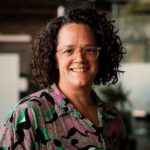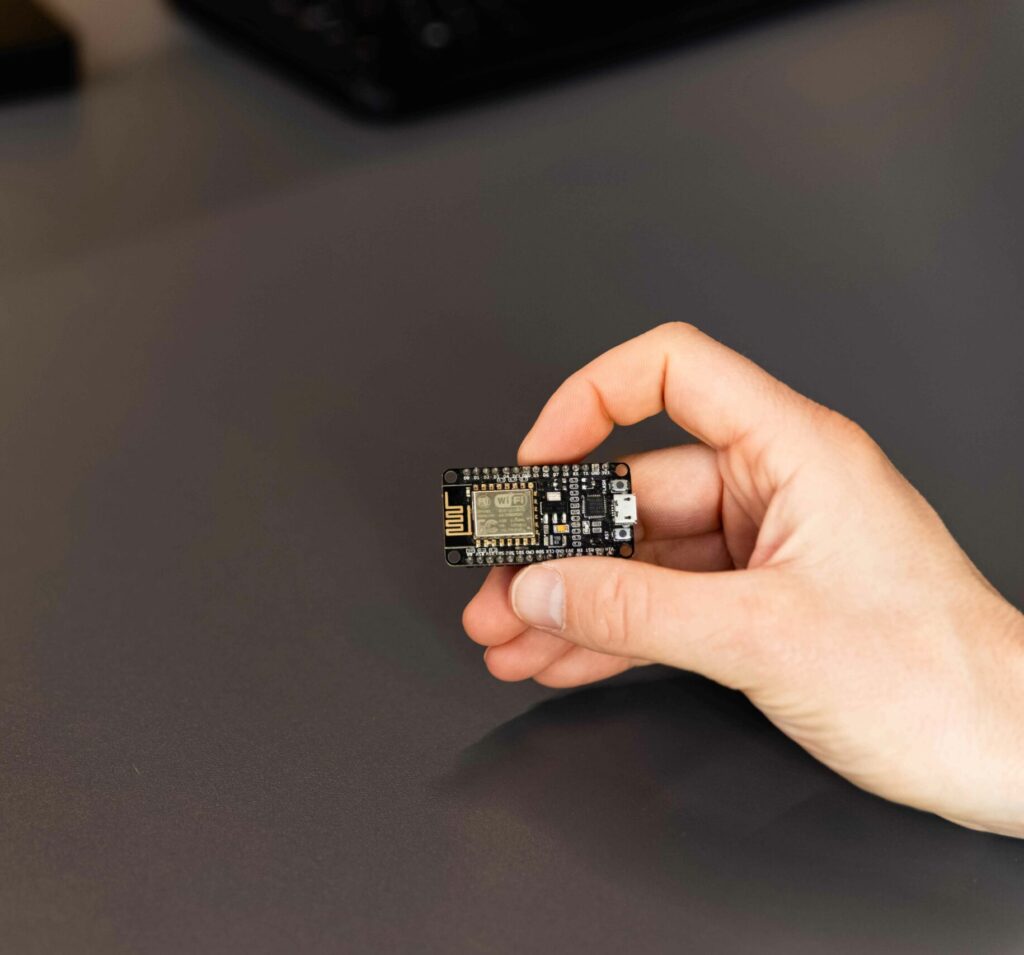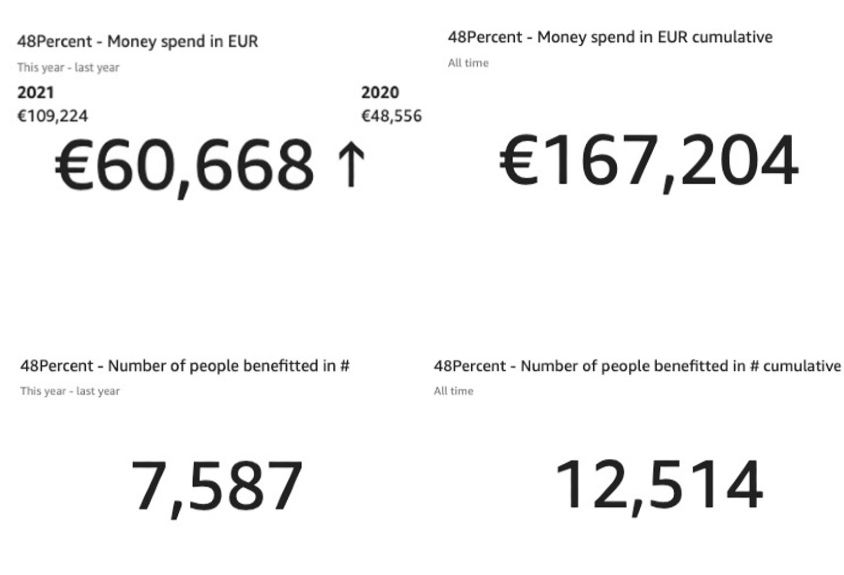2021 – A review of our progress
Here's an overview of what was accomplished by all of our partners in 2021. All in all, we made important steps towards equitable access to connectivity.


Another year has come and gone. With the end of the year comes a moment to examine the efforts we have made as a foundation and the steps we have taken towards realizing our mission of equitable access to connectivity.
As the digital divide grows larger, every project is a step in the direction towards equitable access. Throughout the year we worked with old and new partners alike to realize access in many different ways. Keep on reading to find out exactly what we were up to during 2021.
Our year in numbers
Here’s a few numbers that paint a picture of the work that was done in 2021:
€113,648 euros were contributed to
12 different projects around the world where
7587 people directly benefited from the projects to which we contributed.

Our year in partners and projects
Strengthening existing partnerships
In 2021, one big thing we focused on was continuing already established partnerships with organizations we had previously done projects with. As a foundation, our goal is to look for long term commitments with trusted partners. We stay in close contact with our partners to make sure we know what is happening and how we can support them.
This year we continued our support of BlinkNow and their wonderful school in Kopila Valley. During the first phase of the COVID pandemic the staff did amazing and important work in supporting the local community and keeping the kids at the school happy and educated. Having reliable internet access at the school played a pivotal role in keeping the kids from falling behind, and we were happy to be able to provide that connection for a second year.
Another partner we continued to work with was Edumais. Due to the lockdown and school closure in Brazil, continuing their education was a difficult task for a lot of the kids at Edumais. A lot of the families don’t have access to either devices or affordable connectivity. To mitigate this, Edumais set up a donation campaign to raise money for 4G sim cards.
Learning and growing together
Instead of creating our own round of grant funding with APC as we did in 2020, this year we participated in their annual LocNet grant program, led by APC and Rhizomatica. We contributed financially, but we also were asked to be a part of the selection committees, which gave two of our team members first hand experience in the funding selection process. Together with Sida, the Internet Society, WACC, Mozilla, and Connect Humanity, we supported the granting procedure and participated in the selection committees. In the end out of 96 applications, 15 winners were chosen to receive funding for a wide variety of projects.
In follow up of the emergency funding for communities in the Amazon that happened in 2020, we made an additional contribution to Rhizomatica and KaraSolar to continue their work realizing connectivity for these remote communities.
Connecting with new partners
Our founding partner Voys has an office in South Africa, so of course we were very happy when we came in contact with Isizwe. This amazing South African organization works on setting up sustainable community internet networks in townships with the aim to offer uncapped internet access to the local community for affordable rates. This project was right up our alley so we agreed to embark on a big adventure together. With funding and expertise together we are trying to realize a big network in the township of Mpophomeni.
Getting in touch with theunconnected.org was like finding kindred spirits. This brand new partner has a similar mission to ours. We have joined forces for a project aimed at providing Indian girls living in the slums of Mumbai access to online education. These funds will be spent on hardware and connectivity through new initiatives to respond to the coronavirus (COVID-19) crisis in urban slums and rural areas.
By accessing applications like Audio Storytelling Project, Audio Recording Studio will enable remote teaching and learning to be put in place to make a real and tangible difference to these girls’ education and elevate them from their position of poverty to a more acceptable standard of living. To achieve this, basic smartphones and access to the Internet are critical to help girls to access quality learning where school is often no more than a shed or if they are working in their own time at home. With the right people executing the project on the ground we can ensure the money is being spent as effectively and efficiently as possible. These devices will not only connect one future female leader, one mobile device will connect multiple girls allowing them education and access to educational material in the shape of videos and recordings.
A mix of online and offline
Getting information to very hard to reach places is also the aim of our cooperation with Sawa World. In some situations it is still very difficult to realize connectivity, such as very rural and remote locations. To offer access to information, we want to test forms of offline information carriers that can be used to bring information to those areas.
Together with Sawa World and Lavazza, we are testing the Learn Kernel in the field. This approach was tested with the Ujana Coffee Project, a partnership between Lavazza and Sawa World. The aim of the project is to diversify and increase the income of youth from smallholder coffee farms. A learning platform was created at the end of the initial project phase. A subsequent phase of the project aims to test additional offline tools that allow youth in rural communities, and without connectivity, to better access to the income skills from Sawa World. This will be achieved through the Learning Kernels, an offline tablet-like device that is low-cost and can hold learning videos on the income skills. The kernels will first be tested among 500 youth coffee farmers in Central Uganda in partnership with Sucafina, a close global partner of Lavazza.
While working with projects far from home, it’s important to not loose sight of our own backyard. Another new partnership this year was with De Alliantie Digitaal Samenleven, an initiative to promote digital inclusion in the Netherlands. In the past we have worked to promote affordable internet access in the Netherlands. Having access to a stable, safe and affordable internet connection is not a given. Solving this however, is not a small feat. To help us work on these issues close to hope, we started a new partnership this year was with De Alliantie Digitaal Samenleven, an initiative to promote digital inclusion in the Netherlands. We are very excited about the possibility of this new partnership as the Alliantie has a very similar mission to us.
Because of the pandemic, our goal of getting some field experience as a team was not realized. However, one of our team members was able to go get some first hand experience of the connectivity situation in Lebanon. During her week of working there, she also made contact with AGBU schools, which turned into a partnership where we contributed to the purchasing of computers for the classrooms.
Increasing our technical strength and access to information
Being founded by two communication-tech companies brings with it a love and understanding of technology. However, a knowledge of communication technology does not make us experts of the application of that technology in hard to reach, humanitarian settings.
In order to increase our understanding of these specific circumstances and increase our technical strength there, engaging in technical projects has been a focus point this year. We have very experienced technical advisors on our team who are very eager to lend their expertise to new and innovating projects. Getting in contact with Audiopedia was the perfect opportunity to do this. By sharing information on a local network serving a static website via a Raspberry Pi, this project has great potential for information access in very remote areas.
We have continued our work on what we have started calling the MVP hotspot pilot, which sounds like somewhat of a cryptic name. The project is one of our long term projects and involves various different stages. The end goal is to provide a combination of a low cost solution for in-vehicle internet and GPS vehicle tracking, combined with outside-vehicle remote internet access functionalities in refugee settings. Ideally these solutions can be used together but also separately. To give you an idea of what it entails:
- The solution for in-vehicle internet which can be used by, for example, humanitarian workers during travel time. At the same time, this provides a simple, low cost solution for vehicle-tracking based on GPS data. Commercial options for this exist but are often too expensive for smaller NGO’s working in the humanitarian area. Our MVP is built with parts that are freely available and relatively inexpensive. The idea is that humanitarian organizations can order the parts and, with simple instructions, configure it themselves, offering a cost-effective in-vehicle internet and vehicle tracking solution.
- After we have this working, we will focus on a solution to offer wifi outside the vehicle, for example by using satellite options.
Taking the LEGO bricks approach, the solutions can be used separately but can also be combined. For example to provide health information in refugee camps, to offer low cost internet solutions to refugee populations or education for nomadic schools – just to name a few. This year we worked closely with our partner Greatwaves in developing the first part of the project, which we hope to have ready for field testing in a refugee setting in the first quarter of 2022.
Our plans for 2022
We are very proud of what was accomplished by all of our partners in 2021. Whether the project was big or small, all projects contained important steps towards more equitable access to connectivity.
In the coming year, we look forward to continuing projects that started in 2021, continuing partnerships with our amazing partners, and finding new organizations we can partner with on this path towards connectivity.
If you are interested in working with us in 2022, please contact us on our website. We also encourage you to follow us on Twitter, LinkedIn, or Facebook.